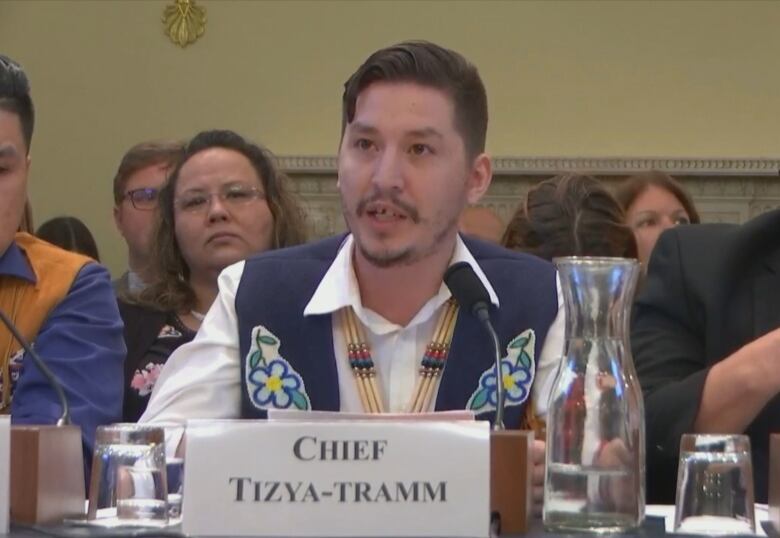
Though the defense of the Arctic Refuge over multiple decades has been driven by the grassroots, on-the-ground organizing of Alaska Natives, environmentalists, and their allies, the fate of this land has ultimately been determined in the arena of federal politics. Through their tireless advocacy, Refuge defenders have built support across the continent and influenced key decisions in Washington, DC.
The existence of the area now known as the Arctic Refuge is itself a product of federal policy. In 1960, following several years of campaigning by wilderness advocates, the outgoing Eisenhower administration issued Public Land Order 2214, which created the Arctic National Wildlife Range. Public concern for the protection of wild lands continued to grow throughout the sixties, leading Congress to pass the Wilderness Act of 1964.
But as fossil fuel use expanded dramatically in the second half of the twentieth century, so did political interest in domestic oil production. Construction of the Trans-Alaska Pipeline in the 1970s facilitated oil development on the North Slope of Alaska. Throughout the 1970s, environmental groups pushed to protect what was then called the Arctic Range from fossil fuel extraction. The result was the 1980 Alaska National Interest Lands Conservation Act (ANILCA), which created the Arctic National Wildlife Refuge. Yet the legislation also represented a compromise by leaving the Arctic coastal plain in legislative limbo and thus potentially open to future drilling.
In 1991, when the Johnston-Wallop bill was proposed in the Senate, Arctic drilling came close to being approved by Congress. Refuge defenders across the nation were able to convince politicians like Senator Paul Wellstone to oppose and filibuster the bill, leading to its defeat later that year. Following the Republican Revolution of 1994, a more pro-drilling Congress was able to pass an Arctic development provision in the 1995 budget bill. This bill was only defeated with a veto from President Bill Clinton.
Clinton justified his veto of the 1995 budget bill in part to protect the “biologically rich” and “pristine wilderness” of the Arctic Refuge. But throughout his tenure, Clinton also supported numerous other fossil fuel development projects. President Barack Obama’s rhetoric on the Arctic Refuge followed a similar pattern. In 2015, he proposed granting wilderness status to the coastal plain and the entire Arctic Refuge. Yet at the same time, his administration approved opening other coastal areas to drilling and supported fossil fuel companies in their efforts to expand production elsewhere.
During the George W. Bush years (2001-2009), there were many close calls, pivotal moments when it seemed that Arctic Refuge drilling would finally be approved by Congress. Once again, though, Refuge defenders mobilized diverse support and convinced fence-sitting politicans to vote against fossil fuel development in the coastal plain.
Following Donald Trump’s election in 2016, his administration wasted little time in opening the Arctic coastal plain to oil development. Republican leaders included an Arctic drilling provision in the Tax Cuts and Jobs Act of 2017. As the bill made its way through Congress, politicians like Senator Bernie Sanders voiced their opposition. But with an increasingly extreme, anti-environment Republican party controlling both houses of Congress, the bill passed and was signed by Trump on December 22—the first time that both Congress and the president had approved Arctic Refuge drilling.
In recent years, progressive politicians have expanded the debate over fossil fuels far beyond the Arctic coastal plain. Proponents of the Green New Deal, like Representative Alexandria Ocasio-Cortez, have hailed the proposal as a means of addressing both the climate crisis and systemic inequalities with integrated policy solutions. Since taking office in 2021, the Biden administration has taken steps to reverse the Trump administration’s lease of the Arctic coastal plain and to protect this land from fossil fuel development.
Statements, Speeches, and Debates
- Senate Environment Subcommittee hearing on Alaska Oil Drilling (1991)
- Senator Paul Wellstone's speech on the Senate floor (1991)
- Clinton's statement following the 1995 budget bill veto
- "Bernie Sanders Yells It's Absurd to Consider Drilling In The Arctic National Wildlife Refuge" (2017)
- Obama's video statement on proposed Wilderness Designation for Arctic National Wildlife Refuge (2015)
The Republican Party and Arctic Drilling
- The Republican Party's "Contract with America" (1994)
- The Republican Reversal on Environmental Policy
- "GOP Quietly Moves to Open Arctic Refuge to Oil & Gas Drilling While Earth Undergoes 6th Extinction" from Democracy Now! (2017)
- "Trump jokes about opening ANWR to oil exploration" from the Washington Post (2018)
